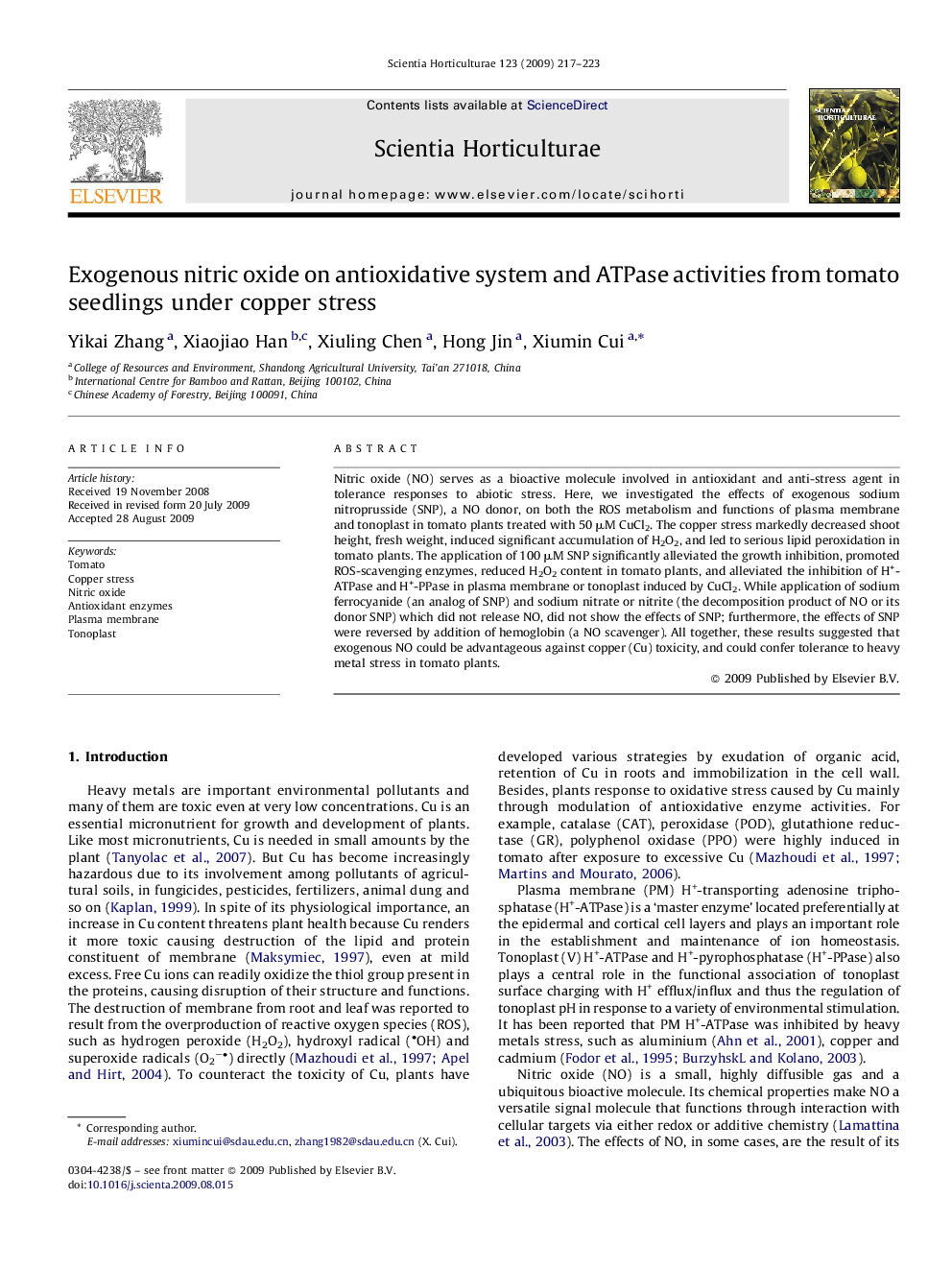| Article ID | Journal | Published Year | Pages | File Type |
|---|---|---|---|---|
| 4568915 | Scientia Horticulturae | 2009 | 7 Pages |
Nitric oxide (NO) serves as a bioactive molecule involved in antioxidant and anti-stress agent in tolerance responses to abiotic stress. Here, we investigated the effects of exogenous sodium nitroprusside (SNP), a NO donor, on both the ROS metabolism and functions of plasma membrane and tonoplast in tomato plants treated with 50 μM CuCl2. The copper stress markedly decreased shoot height, fresh weight, induced significant accumulation of H2O2, and led to serious lipid peroxidation in tomato plants. The application of 100 μM SNP significantly alleviated the growth inhibition, promoted ROS-scavenging enzymes, reduced H2O2 content in tomato plants, and alleviated the inhibition of H+-ATPase and H+-PPase in plasma membrane or tonoplast induced by CuCl2. While application of sodium ferrocyanide (an analog of SNP) and sodium nitrate or nitrite (the decomposition product of NO or its donor SNP) which did not release NO, did not show the effects of SNP; furthermore, the effects of SNP were reversed by addition of hemoglobin (a NO scavenger). All together, these results suggested that exogenous NO could be advantageous against copper (Cu) toxicity, and could confer tolerance to heavy metal stress in tomato plants.
